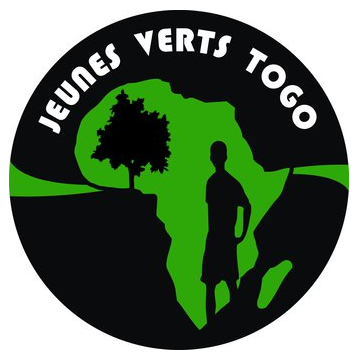Lacina Koné, Director General of Smart Africa, believes Africa can be a major player in the global digital economy. In an exclusive interview, he discusses three factors that will shape Africa’s digital future.
In April this year, Smart Africa, a consortium of African states and organisations dedicated to the acceleration of access to ICTon the continent and a thriving digital economy, held its Transform Africa Summit in Victoria Falls, Zimbabwe. This was the first time the Summit was held outside of Kigali, which is where Smart Africa is headquartered.
For Lacina Koné, director general of Smart Africa, the Summit was a success. Attended by five heads of state alongside ministers from 44 countries and over 4000 delegates from 91 countries around the world, it also saw the consummation of several significant deals for the continent’s digital future. For Koné, the Summit was an opportunity to rubberstamp the organisation’s strategy and once again put to the fore some of the key agenda points that need to be addressed if the continent is not to be left behind by the digital revolution.
Three factors that will shape Africa’s digital future
From where he sits, Koné sees three important factors that will shape Africa’s digital future.
1. Abundance of youth talent
One of these is the continent’s abundance of talented youth. “Africa is the youngest continent in the world and with the current improvement in education quality in conjunction with digital skills, Africa may become the continent with the most ingenious workforce,” he says.
With tech-focused institutions of training springing up around the continent, including in Rwanda and Kenya, training is improving. At the same time, global tech brands such as Google, Meta, IBM and Microsoft are setting up on the continent, providing an avenue to nurture and develop these talents of young people coming out of the institutions of learning. And with companies in the West looking to outsource digital engineering jobs, Africa could become a ready source, just as India was for back-office operations in the previous surge of outsourcing. The combination of these factors, Koné is convinced, will make Africa a force to reckon with in digital innovation in the not-too-distant future.
2. Representative African datasets
The other important factor that will have a significant influence on the continent is how data from the continent can be incorporated into artificial intelligence data sets to make it fairer and more representative.
As the AI revolution has gathered steam, concerns have been raised by its unrepresentativeness and its propensity to be Western-focused in its outcomes. Koné thinks that concern may soon be addressed, as efforts to harness African data become more successful. “The dawn of the digital transformation is about to change that,” he says. “In the coming year, we will see the generation of African datasets that will enable us to build up African representation and ensure that we are not left behind in the AI revolution.”
As proof, he points to the rollout of e-citizen programmes in Kenya, Ghana, Benin, Rwanda, Senegal and other countries that will bring thousands of government services online and produce reams of data, as users leave their digital footprints while accessing those services. Much needs to be done to resolve issues around data ownership, privacy and data protection but he says that the European General Data Protection Regulation is a good reference point.
From an African perspective, another helpful initiative is the Masakhane project, which seeks to spur research into and help improve natural language processing (NLP) for African languages. Koné is quick to differentiate between big tech firms mining data to help target their advertising from this kind of data, and those institutions that have a public service function, such as enabling better planning and policymaking and building a more inclusive digital future.
3. Cybersecurity
A necessary corollary to the impending explosion of available data in and on Africa and Africans is the issue of cybersecurity, the final leg in Koné’s tripod.
“As Africa becomes more digital, there’s a tremendous opportunity in the area of cybersecurity,” he emphasises.
Digitalisation, Koné argues, constitutes, in a sense, an extension of national borders and requires matching measures of security. According to him, while a lot of companies are keen to do business in Africa’s digital space, cybersecurity still leaves a lot to be desired. “Africa will need to do more and collaborate more with world leaders in the field of cybersecurity,” he urges.
Getting digital policy right
The past few years, from a trade and commerce perspective, have been dominated by the opportunity of the African Continental Free Trade Area (AfCFTA). Does he see some convergence in terms of national governments and policy when it comes to the digital world?
Koné says full implementation will require the harmonisation of all trade policies across the continent, something that Smart Africa believes it can play a role in. “When we talk about free trade, we talk about the free movement of people and goods. People move with their digital ID and goods also move with trackable references so we need to support the efforts of the AfCTFA Secretariat.”
Those efforts include the development of a digital trade protocol for the approval of member states. “Once approved, it will bind member states to work together and enable the development of a digital trade ecosystem in Africa. That means e-commerce; people moving with their digital ID; logistics; and it becomes the real vehicle for the creation of a truly digital single market,” Koné says.
Getting the digital policy right will mean a coherent approach to the development of digital infrastructure. Here, Koné cautions that there are a few moving parts that need to be brought together deftly by policy makers. Digital public infrastructure (DPI – digital ID, payment systems and the data centres), he says, must be distinguished from digital public goods, which are government services to citizens.
“In the area of DPI, we have several initiatives, while governments like those in Ghana, Rwanda and Kenya, are making strides in providing digital public goods – e-services – to citizens. It is important, Koné says, to integrate these different elements.
“India would not have been where they are if they had not launched the Aadhaar system,” he argues, referring to India’s biometric identification system, the largest in the world, “but the digital ID is just one piece of the components that you need”. Private investment in digital infrastructure is also critical, as governments cannot be relied on to build and more importantly, manage it all.
How to increase usage
Infrastructure, however, is only a part of the problem hindering access. While there is a general focus on extending infrastructure for coverage, less attended to is the question of usage, Koné points out.
“We are facing a problem that is bigger than coverage. Out of the 1.4bn people in Africa, only 43% are connected but we have 30% of people living in areas where there is infrastructure that is not being used. How do we address that?”
The answer, Koné volunteers, is affordability. With affordable data and affordable devices, he stresses, more local content and cyber hygiene, that 30% could be brought into the digital realm, bringing connectivity in the continent to 75% by 2025. More specifically, there should be greater emphasis on the landlocked countries, which are often left out of initiatives to boost connectivity. “We want to talk about land-linked countries. A country can be landlocked but when they are land-linked, they have no disadvantage compared to other countries.”
Positive tidings
Ultimately, Koné is hopeful that technology and AI in particular, bears positive tidings for Africa. “I truly believe that AI is a technology that will benefit Africa more than any other continent in the world,” he says. Among other things, it will correct the literacy imbalance, enabling those without the skills currently needed to access technology to also do. “With AI and NLP, our young people can develop applications that can be used by people who have not been to school so they can at least use the technology.” he predicts.



